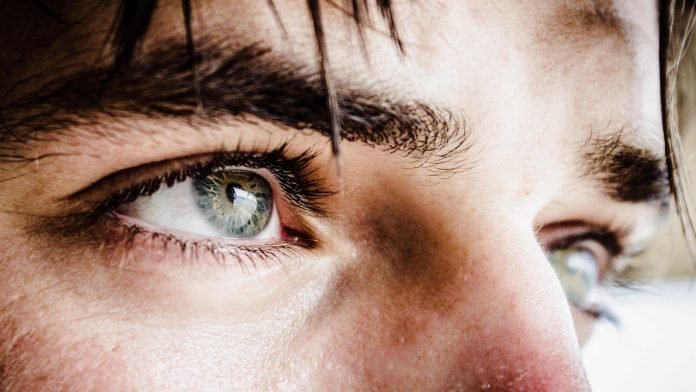
Diabetic retinopathy is an eye condition that can cause vision loss and blindness in people who have diabetes. It affects blood vessels in the retina (the light-sensitive layer of tissue in the back of your eye).
If you have diabetes, it’s important to get a comprehensive dilated eye exam at least once a year. Diabetic retinopathy may not have any symptoms at first — but finding it early can help you take steps to protect your vision.
Managing your diabetes — by staying physically active, eating healthy, and taking your medicine — can also help you prevent or delay vision loss.
The early stages of diabetic retinopathy usually don’t have any symptoms. Some people notice changes in their vision, like trouble reading or seeing faraway objects. These changes may come and go.
In later stages of the disease, blood vessels in the retina start to bleed into the vitreous (gel-like fluid that fills your eye). If this happens, you may see dark, floating spots or streaks that look like cobwebs.
Sometimes, the spots clear up on their own — but it’s important to get treatment right away. Without treatment, the bleeding can happen again, get worse, or cause scarring.
Diabetic retinopathy is caused by high blood sugar due to diabetes.
Over time, having too much sugar in your blood can damage your retina — the part of your eye that detects light and sends signals to your brain through a nerve in the back of your eye (optic nerve).
Sign up for our newsletter for more information about this topic.
Diabetes damages blood vessels all over the body. The damage to your eyes starts when sugar blocks the tiny blood vessels that go to your retina, causing them to leak fluid or bleed.
To make up for these blocked blood vessels, your eyes then grow new blood vessels that don’t work well. These new blood vessels can leak or bleed easily.
Eye doctors can check for diabetic retinopathy as part of a dilated eye exam.
The exam is simple and painless — your doctor will give you some eye drops to dilate (widen) your pupil and then check your eyes for diabetic retinopathy and other eye problems.
If you have diabetes, it’s very important to get regular eye exams. If you do develop diabetic retinopathy, early treatment can stop the damage and prevent blindness.
For information about the prevention and treatment of diabetic eye diseases, please check this video:
If you care about diabetes, please read studies about worst vegetables for people with diabetes, and 5 dangerous signs you have diabetes-related eye disease.
For more information about diabetes, please see recent studies that heavy cannabis use may decrease incidence of diabetes, and results showing this berry can help prevent diabetes, obesity, cancer.



